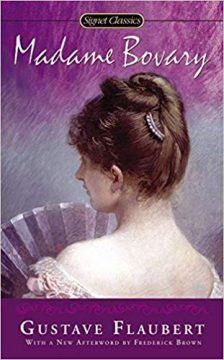 In her just-published “Unfinished Business: Notes of a Chronic Re-Reader,” Vivian Gornick looks at a handful of books — mainly 20th-century novels — that have helped her better understand herself and key episodes in her past. However, Gornick’s vivacious and highly recommended memoir never fully takes up the larger question: To read or reread? As we all turn the pages on life’s way, there are clearly times we hunger for the excitement of the new and other times when we need the comfort of the familiar. The very young, at bedtime, never tire of hearing yet one more rendition of “Goodnight Moon,” as sleepy parents well know. Later on, kids gravitate to series titles, racing through the Wimpy Kid’s misadventures, one Sweet Valley High paperback after another, or that supreme test of a young reader’s skill, the seven volumes of Harry Potter. In adolescence, we enter the era of competitive reading. During my own high school days fat paperbacks of “Gone With the Wind,” “Stranger in a Strange Land” and “The Rise and Fall of the Third Reich” were passed around school hallways. Now, it might be “Infinite Jest.” Page count, after all, confers cachet. In ninth grade, I doggedly worked my way through a two-volume history of English literature mainly to show off.
In her just-published “Unfinished Business: Notes of a Chronic Re-Reader,” Vivian Gornick looks at a handful of books — mainly 20th-century novels — that have helped her better understand herself and key episodes in her past. However, Gornick’s vivacious and highly recommended memoir never fully takes up the larger question: To read or reread? As we all turn the pages on life’s way, there are clearly times we hunger for the excitement of the new and other times when we need the comfort of the familiar. The very young, at bedtime, never tire of hearing yet one more rendition of “Goodnight Moon,” as sleepy parents well know. Later on, kids gravitate to series titles, racing through the Wimpy Kid’s misadventures, one Sweet Valley High paperback after another, or that supreme test of a young reader’s skill, the seven volumes of Harry Potter. In adolescence, we enter the era of competitive reading. During my own high school days fat paperbacks of “Gone With the Wind,” “Stranger in a Strange Land” and “The Rise and Fall of the Third Reich” were passed around school hallways. Now, it might be “Infinite Jest.” Page count, after all, confers cachet. In ninth grade, I doggedly worked my way through a two-volume history of English literature mainly to show off.
College is dominated by required reading. In those years, we don’t read, we take notes, we highlight and underline. Study grows into a weariness of the flesh. In the evenings, we dutifully trot over to the library, spread our books out on an oak seminar table, open Paul Samuelson’s “Economics” to Chapter 3 and then gently lower our heads onto our pillowy backpacks. Once we finally graduate, we store our college texts in our parents’ attic and never look at them again. For the next few decades, the bestseller list governs much of our reading, even much of our thinking.
More here.